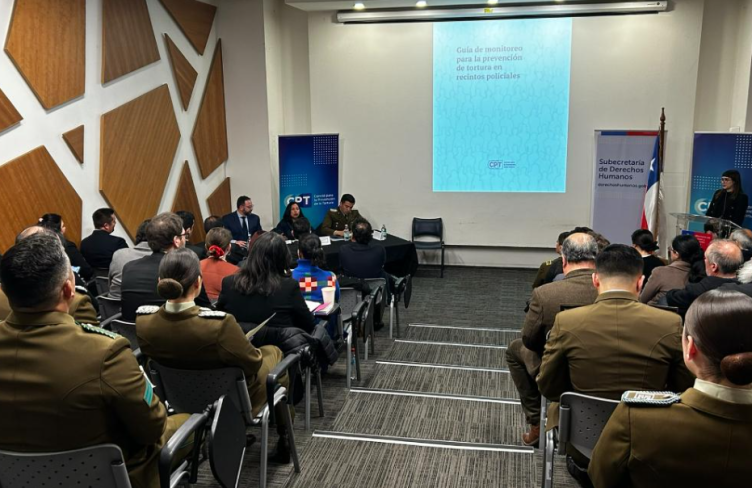
Human rights should guide the Global Compact on Migration both in terms of content and process. This is the message that APT delivered during the Global Compact’s first thematic session held on 8-9 May 2017. In particular, the APT raised the necessity to strengthen independent monitoring of immigration detention places.
The Global Compact on Safe, Orderly and Regular Migration is a State-led process born of the 19 September 2016 UNGA High-Level Summit on Large Movements of Refugees and Migrants, which brought together Heads of State and Government who committed to strengthen the international frameworks addressing the protection of refugees and migrants in large movements. Taking guidance in a humane, sensitive and people-centred approach, the Global Compact seeks to adopt a framework for international cooperation on migration and human mobility, while defining a range of principles, commitments and understandings among UN Member States regarding international migration.
The process debuted on 8 May 2017 with a thematic session on Human rights of all migrants, social inclusion, cohesion and all forms of discrimination, including racism, xenophobia and intolerance. Four panels framed the discussions and offered States, civil society organisations and national human rights institutions the opportunity to find areas of common ground and complexity. Overall, States agreed that the Global Compact on Migration should be grounded in the existing human rights normative framework and reiterated that migrants, including irregular migrants, are rights-holders whose voices needed to be integrated into the process. However they weren’t yet able to find consensus on issues related to border control, on the balancing of national security concerns and migrants’ rights, or on respect for human rights upon arrival or return.
Welcoming the Global Compact process established under the 2016 New York Declaration for Refugees and Migrants, the APT, contributing to the process took the opportunity to raise its main concerns and share its recommendations through a statement, calling on the Global Compact to:
- Uphold the principle that immigration detention only be used as a measure of last resort, after prior consideration of alternative measures of detention and only accompanied by effective legal safeguards;
- Call on States to keep close scrutiny on the functioning of private companies, increasingly used to manage immigration detention places, and to strengthen accountability for human rights violations;
- Urge States to strengthen the independent monitoring of immigration detention places, particularly by National Preventive Mechanisms established under the OPCAT to contribute to prevent the risks of torture and other ill-treatment.
APT also raised its concerns over the limited space afforded to civil society organisations to meaningfully participate in the process, recalling the General Assembly Resolution on Modalities which provides for effective participation of civil society in the intergovernmental conference and its preparatory process.
The process leading to the Global Compact on Migration will continue in June 2017 with additional thematic sessions on drivers of migration, and on international cooperation and governance of migration in all its dimensions, including at borders, on transit, entry, return, readmission, integration and reintegration. More engagement is needed in order to push for consensus on key issues and APT will continue to bring forward aspects related to immigration detention and the need to adequately address the situation of vulnerability of migrants deprived of liberty.
To read APT’s full statement, please click here
For all the documents of the first Thematic Session (including all statements, webcast links, programme, reports), please click here


